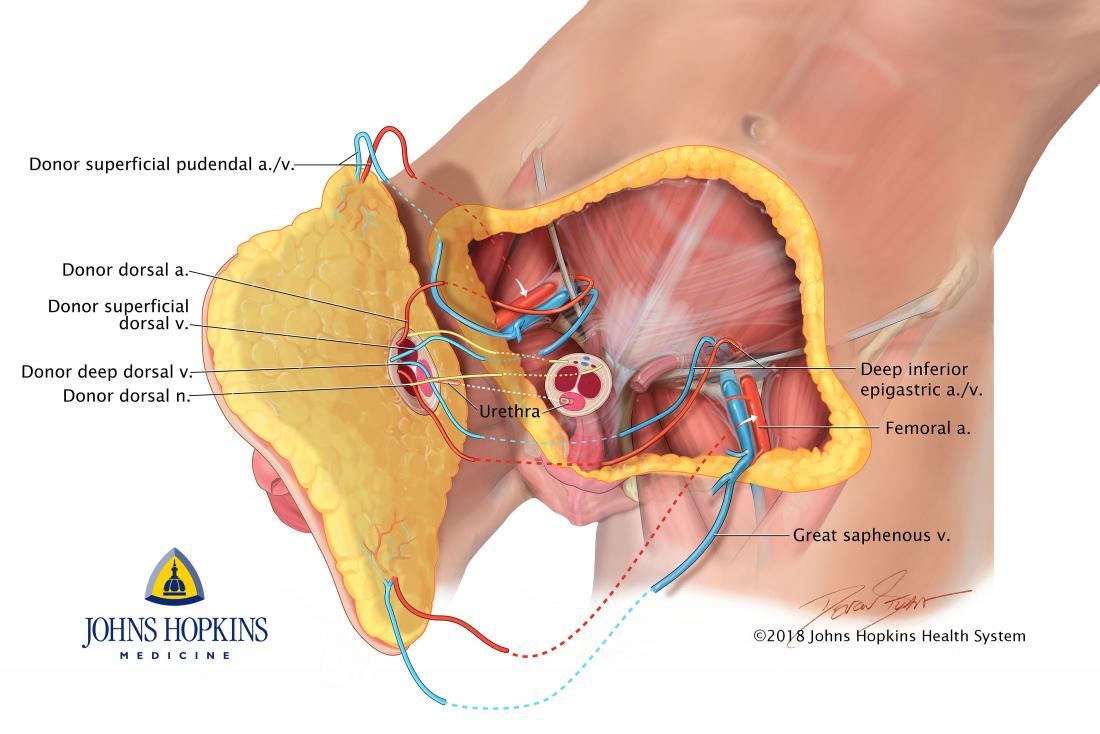For the first time, a team of US surgeons from Johns Hopkins Medicine in Baltimore, Maryland, has managed to transplant the penis and the scrotum from a deceased donor to a recipient who had lost his genital organs during armed service.
According to a report by Medical News Today, the surgeons had been planning such an intervention since 2013.
In the telebriefing statement of the institution’s genitourinary programme, the programmme’s clinical director, Dr. Rick Redett, called the procedure “the culmination of more than 5 years of research and collaboration across multiple disciplines.”
The successful transplant was performed last month on a United States war veteran who lost his genital organs after the unexpected explosion of an improvised explosive device, MNT reported.
“It’s a real mind-boggling injury to suffer, it is not an easy one to accept,” confesses the recipient, who prefers to preserve his anonymity.
The transplant, he says, finally gives him back a measure of confidence and stability.

The surgery, which lasted 14 hours, was performed by a large team of doctors, anesthetists, and nurses led by Dr. W. P. Andrew Lee, the director of plastic and reconstructive surgery at the Johns Hopkins University School of Medicine.
During the procedure, the penis, surrounding tissue, and scrotum — though not the testicles — of a deceased donor were grafted onto the recipient. This complex type of transplant surgery is called “vascularized composite allotransplantation.”
“The damaged and scarred tissues,” says Dr. Redett in his telebriefing statement, “were removed from our patient and the necessary blood vessels and nerves were identified.”
“For the transplant,” he adds, “three arteries, four veins, and two nerves were connected under the microscope to provide complete blood perfusion and sensation to the transplanted tissue.”
Dr. Lee notes that the recipient “is recovering well,” and that he is following an immune modulation protocol — which also involved a bone marrow transplant from the donor — in order to ensure that his body does not reject the transplanted organ and tissue.
The surgeon also expresses his hope that the patient will make a good recovery, and that he might eventually regain both urinary and sexual function, almost to the full extent.
The family of the deceased donor have also released a statement, expressing their wishes that the recipient would make a full and steady recovery, and saying that they are glad to know that their loved one has contributed to changing someone’s life so radically for the better.
“We are all very proud that our loved one was able to help a young man that served this country,” they say.
And, in a direct address to the recipient, they say, “We hope you can return to better health very soon and we continue to wish you a speedy recovery.”






